The 'lost art' of painting hydro-electric stations
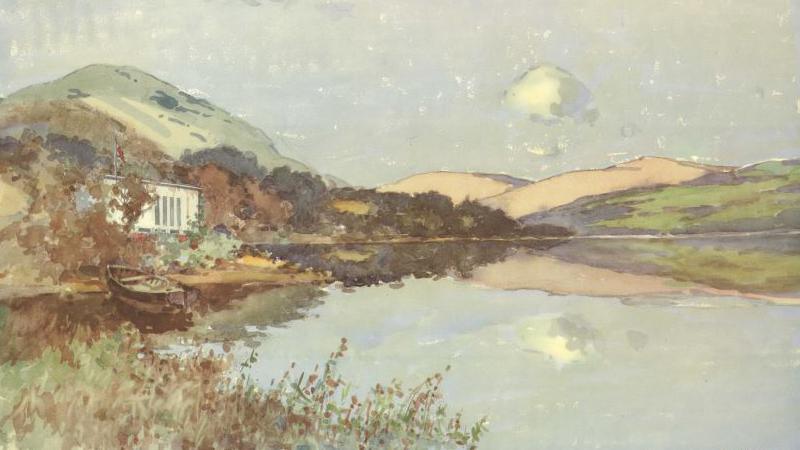
A painting of Finlarig generating station in Perth and Kinross
- Published
Paintings and drawings created by artists to give an impression of how hydro-electric schemes would look in Scottish landscapes have gone on show in Inverness.
The illustrations were created in the 1940s and 1950s during the planning of dams and power stations at locations including Pitlochry in Perthshire and Foyers on Loch Ness.
They form part of SSE Heritage's Power from the Glens exhibition at Eden Court.
Dr Alistair Fair, a reader in architectural history at the University of Edinburgh, said: "These drawings, in a way, are a lost art now."
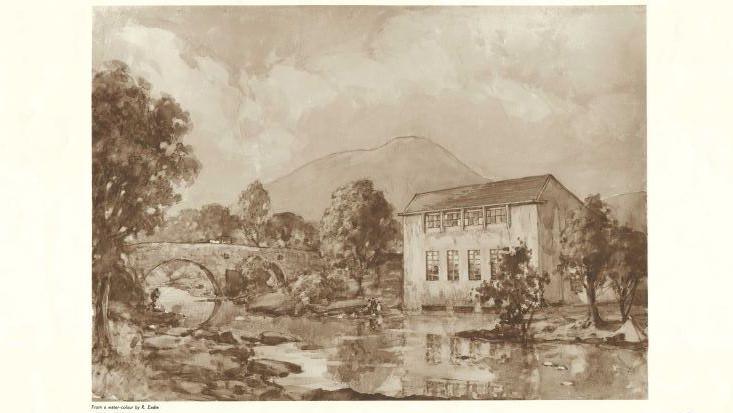
An illustration of Ceannacroc generating station in the Highlands' Great Glen
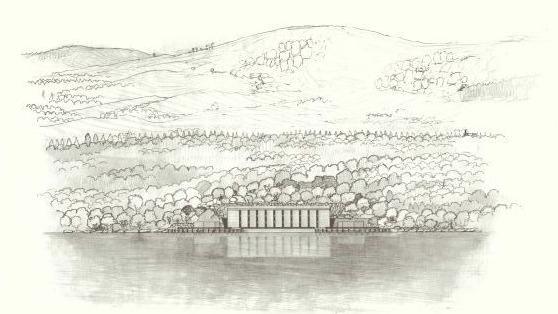
An illustration of Foyers hydro scheme at Loch Ness
The exhibition has been on tour since last year.
It was organised to mark the 80th anniversary of the 1943 Hydro Electric Development (Scotland) Act, which brought hydro-electric power to the Scottish glens.
The act led to the construction of 54 power stations, 78 dams and more than 186 miles of underground tunnels.
Power from the Glens includes original design drawings of architects and also paintings and drawings of artists including Robert Eadie and William Douglas Macleod.
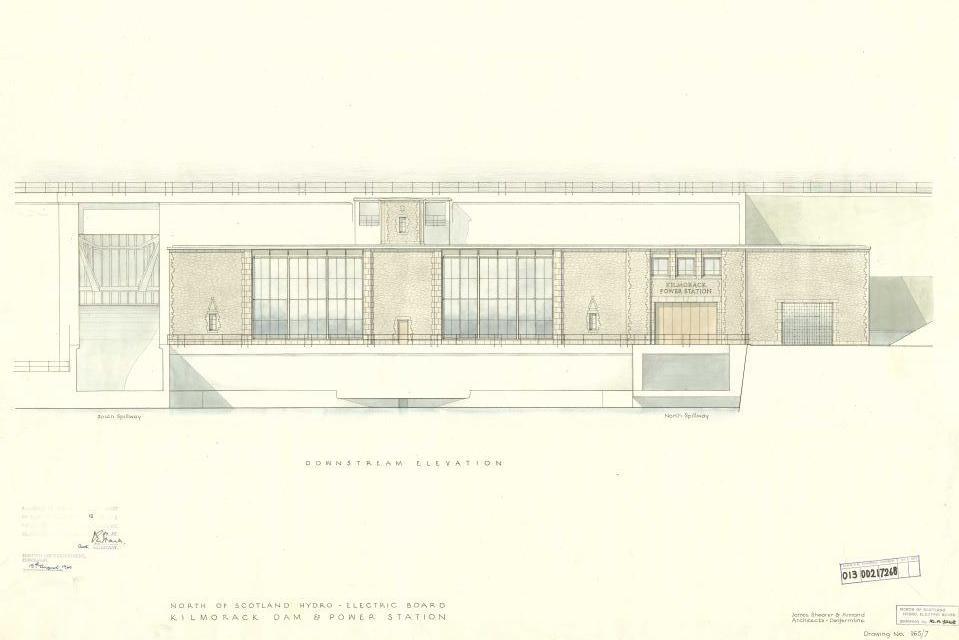
A drawing of Kilmorack power station in the Highlands
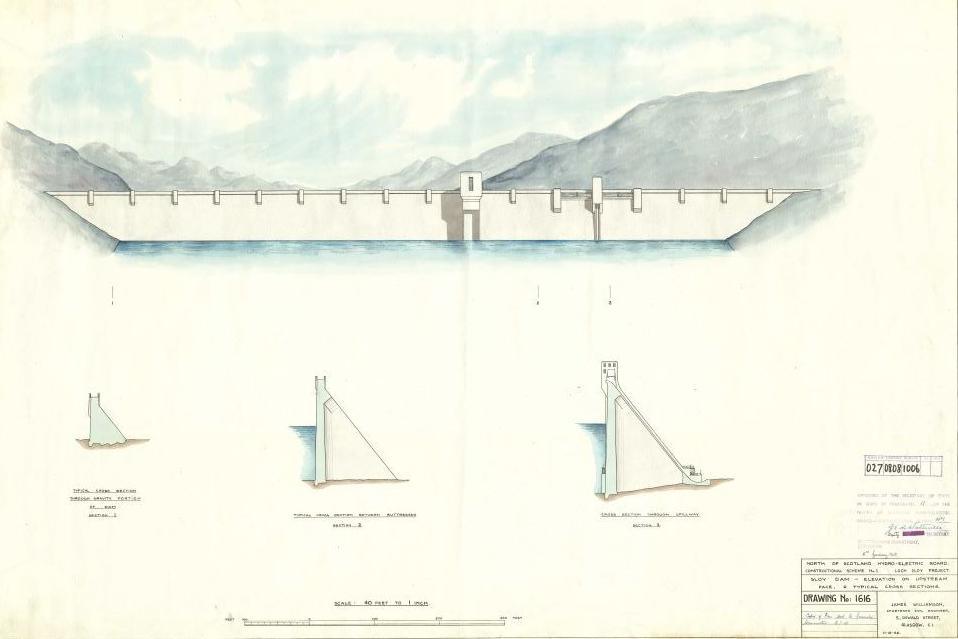
An illustration of Loch Sloy dam near Loch Lomond
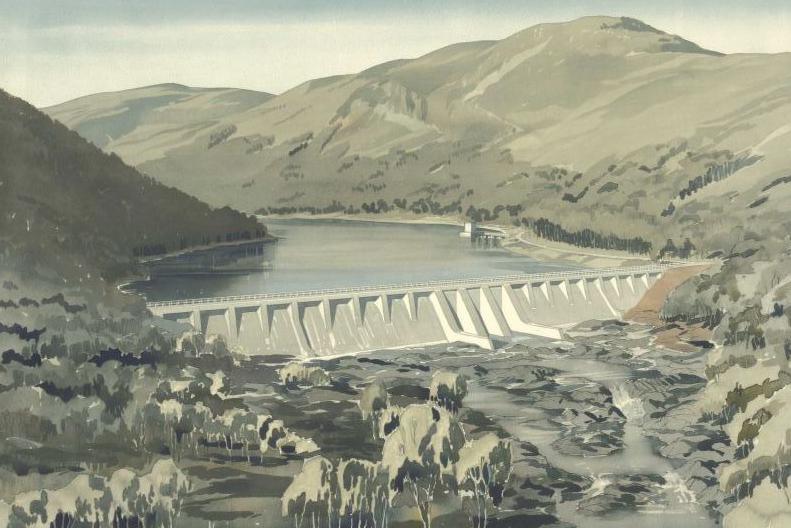
A painting of Luichart dam near Strathpeffer
Dr Fair said the architects' technical drawings were from an enormous amount of paperwork produced in the planning of hydro schemes.
He said: "There is another side of the drawings which are perhaps a wee bit more unusual.
"Described as general impressions these are watercolours that show what was proposed would look like before it was built so it could be imagined in the landscape."
Dr Fair added: "This was before the era of computers.
"Today if you were trying to show people what a new scheme would look like you would imagine it using something like virtual reality."
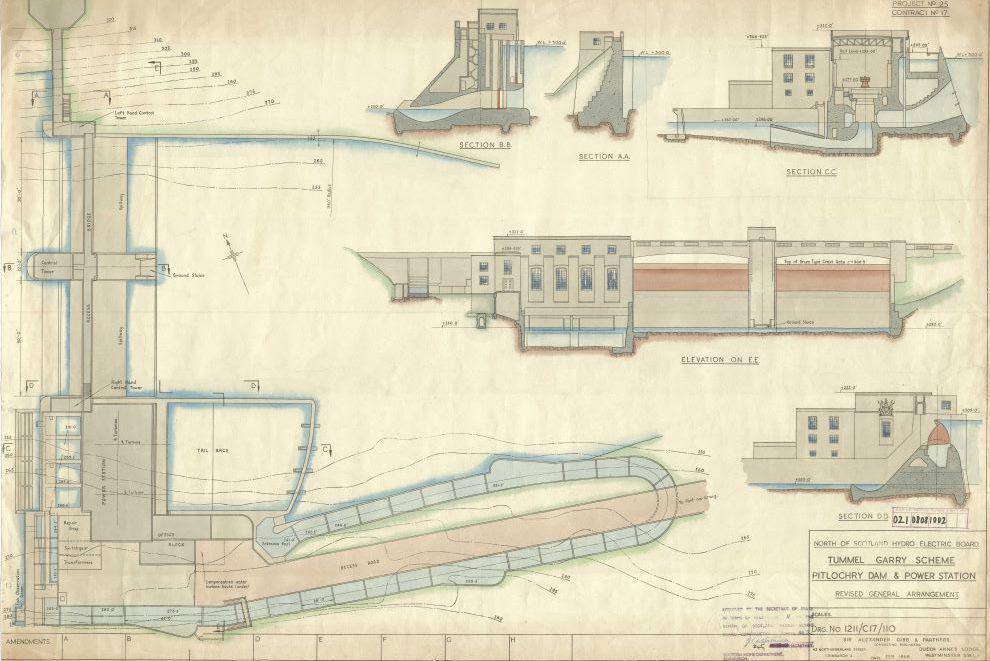
A technical illustration of Pitlochry dam and power station
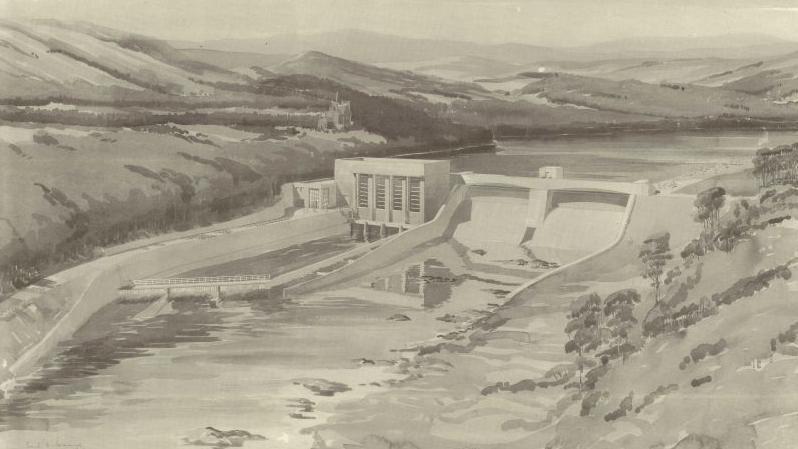
An artist's impression of the Pitlochry hydro scheme